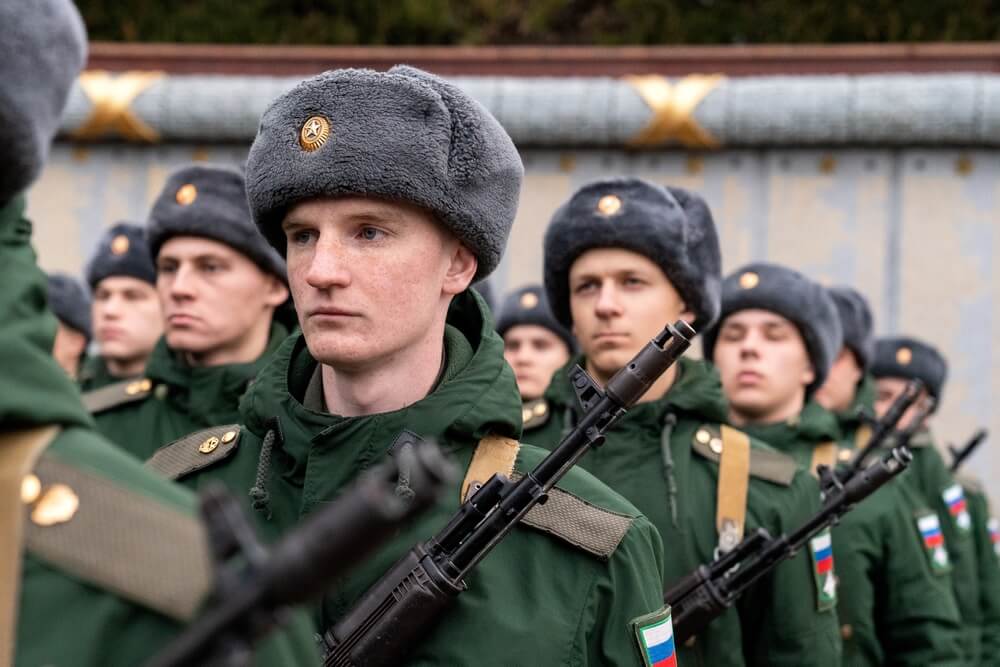A delegation of military training officials from North Korea travelled to "visit" Russia at the beginning of July, as the authorities in Pyongyang announced at the time.
Then they explained that it was about "the first military exchange between the two countries" since the leaders of Russia and North Korea signed an agreement on military cooperation just three weeks earlier.
Judging by Kyiv's belief that soldiers from North Korea are also fighting on the side of the Russian invasion army in Ukraine, it is possible that one of the training officials from Pyongyang has not returned from the "visit" he went to three months ago.
"It is no longer just about sending weapons. It is actually about sending people from North Korea to the occupying forces," said President of Ukraine Volodymyr Zelensky last Sunday.
It appears that Pyongyang, in addition to providing significant quantities of weapons, particularly artillery ammunition, is also deploying its own troops to assist the Russian army.
The reports that the Ukrainian army killed six North Korean officers in a missile attack on Russian positions near Donetsk at the beginning of October received a "highly likely" rating from South Korean Defence Minister Kim Yong-hyun.
This was preceded by frequent speculations by observers on the front via the Telegram network about the bodies of North Korean soldiers found on the Russian side of the front. But, so far, without tangible confirmation.
Continuation of strategic military cooperation
"This looks like another bit of fake news," said Kremlin spokesman Dmitry Peskov, not only regarding speculation on social media but also regarding frequent media reports about the participation of North Korean soldiers in the fighting in Ukraine.
However, the spokesperson's denials won't suffice to conceal the logical progression of intense military cooperation between Moscow and Pyongyang since the start of the Russian invasion of Ukraine in February 2022.
The document on military cooperation, which Putin and Kim Jong Un signed in Pyongyang last June, is de facto an agreement on the conclusion of a military alliance. It also foresees mutual support in the event of an attack on one of the parties, which is strategically new, as well as the highest level of long-term partnership between the two states.
Large quantities of weapons and ammunition have been flowing from North Korea to Russia, despite a series of UN resolutions
This agreement marked the culmination of close consultations and mutual visits by high-level political and military delegations, beginning with the visit of then-Russian Defence Minister Sergei Shoigu to Pyongyang in July 2023.
Since then, large quantities of weapons and ammunition have been flowing from North Korea to Russia, despite a series of UN resolutions prohibiting the transfer of any weapons between North Korea and another UN member state.
"There is now a continuous flow of cargo between Russia and the DPRK. This includes munitions and ballistic missiles," said Ambassador Barbara Woodward, UK Permanent Representative to the UN, last June.
According to a US State Department official, the US estimated this cargo at 16,500 containers of ammunition and other military equipment last year.
Desperate move
Moscow's decision to turn to Pyongyang during its aggression against Ukraine was a desperate move, as the large consumption of ammunition threatened Russian stockpiles. Simultaneously, the rapprochement between the two autocracies highlighted the predicament Russia found itself in after its bad plans and decision to attack Ukraine.
The path taken by Moscow then logically continues with the engagement of North Korean fighters in Ukraine, and since the last July agreement between Putin and Kim, there has been an interstate agreement for that.
This indicates that the lack of military equipment in the Russian army has also resulted in a manpower shortage. It is very difficult to determine the exact magnitude of this deficit.
Several thousand North Korean soldiers have been training on Russian territory - ISW
The Institute for the Study of War reported last week, citing Ukrainian officials, that "several thousand" North Korean soldiers have been training on Russian territory and that the Russian command could send them to the Ukrainian front by the end of this year.
Another potential role for them is to act as a buffer inside Russian borders, thereby freeing up Russian reserves for deployment to Ukraine.
Russian conscripts and their comrades from North Korea
In any case, North Korean troops either now or very soon will directly participate in Russian aggression against Ukraine. The Russian command's decision on how to use them will reveal the extent of the manpower shortage within the Russian invasion forces.
Putin's recent call for a regular fall conscription, which will include slightly more than 130,000 Russians between the ages of 18 and 30, will not significantly address this chronic shortfall.
 Many conscripts ended up on the Ukrainian front by signing an agreement on professional military service, often under duress
Many conscripts ended up on the Ukrainian front by signing an agreement on professional military service, often under duress
Since the start of Russian aggression, there have been systematic violations of the Russian laws, which prohibit sending conscripts to the front without at least four months of military training and certainly not outside Russian territory.
Many conscripts ended up on the Ukrainian front by signing an agreement on professional military service, often under duress.
Therefore, it's likely that those recruited by the end of the year will cross paths with regular North Korean army soldiers, all while engaging in aggression against a foreign nation.